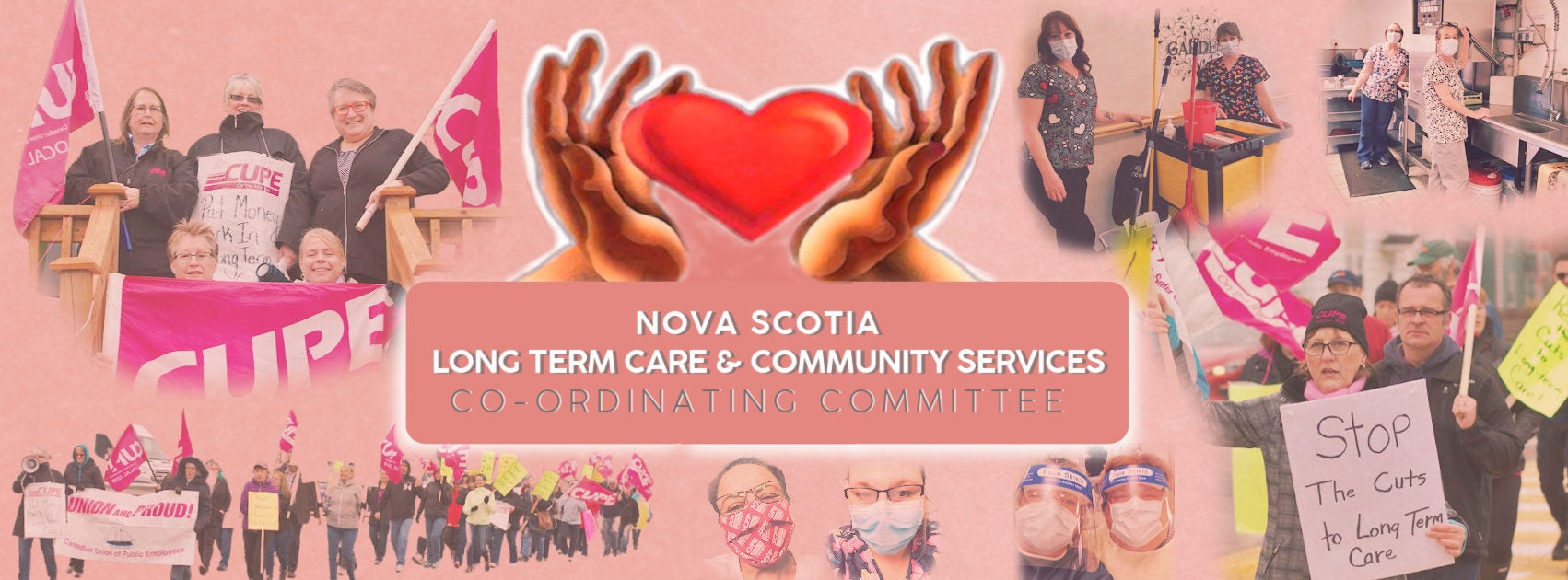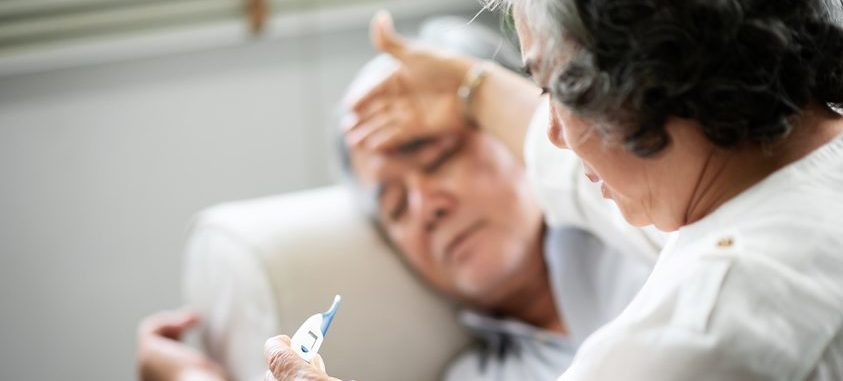PHOTO : www.griswoldhomecare.com
Dozens of staff and residents at least seven long-term care facilities have tested positive for the disease.
APRIL 14, 2020 BY JENNIFER HENDERSON, The Halifax Examiner
Over the Easter weekend, 16 residents and 10 employees at the Northwood long-term-care complex in Halifax tested positive for COVID-19.
The nursing home’s website says all 26 — plus four more staff who provide homecare services — have exhibited mild to moderate symptoms. Medical staff have isolated and are caring for the infected residents on a separate floor of Northwood Manor. Dr Robert Strang, Chief Medical Officer of Health for the province, expressed, “concern for the people,” but said “I am confident everything that can be done is being done.”
Northwood Inc., with 485 residents, has emerged as a hotspot for the virus. COVID-19 has also infected residents and staff in at least seven other long-term care facilities, including R.K.MacDonald in Antigonish, the Northside Community Guest Home in North Sydney, Shannex’s Arborstone facility in Halifax and its Lewis Hall and Harris Hall in Dartmouth, Ocean View Manor in Eastern Passage, and Magnolia Manor in Enfield.
The Department of Health did not respond by deadline yesterday to the Examiner’s request for total numbers of staff and residents in long-term care facilities who have tested positive for COVID-19 to date. A Cape Breton nursing home resident in her 70s was Nova Scotia’s first reported death.
Elderly people with underlying medical conditions are at greatest risk. Since that’s the profile of so many nursing home residents, it was no surprise when Dr. Theresa Tam, Canada’s Chief Medical Officer, reported on Monday that nearly half the COVID deaths in Canada have been residents of long-term care facilities.
Over this past weekend, the Nova Scotia Department of Health and Wellness — which licenses and regulates 132 long-term care facilities — made it mandatory for all nursing home employees to wear surgical masks at work. These are the regular masks and not the specialized N-95 model which nurses and physicians wear when intubating severely ill people. Nurses and Continuing Care Assistants (CCAs) who interact with residents who are either suspected or confirmed COVID cases must “gown up” and wear Personal Protective Equipment from head to toe.
“We’re now seeing increased community spread and we know from other jurisdictions that this means an increase in cases in long-term care facilities,” said Dr. Strang. “It’s almost impossible for people working in long-term care facilities to practise physical distancing, given they are helping people who need hands-on care. Wearing a surgical mask is another measure we can use to prevent further spread of infection.”
This policy which officially takes effect yesterday, April 13, in Nova Scotia has been in place for one week in Quebec. The mask came too late for that province, where one in four long-term care facilities now have the virus. A particularly horrific story made headlines over the weekend when police moved in to investigate a privately-owned nursing home in Montreal where 31 seniors have died in the past three weeks.
Asked at the news briefing yesterday why it took so long for the Health Department to distribute masks to workers in high-risk settings such as nursing homes, Dr. Strang said the province “has been adapting its response as the science evolved.” Premier Stephen McNeil acknowledged the province was not previously in a position to secure the “millions of masks” that front-line workers in nursing homes, residential care facilities, and private homes will need over the next few months. They will be distributed to home-care workers today (Tuesday).
“Masks are in high demand around the world and we wanted to be sure we had the supply before we started to distribute,” said McNeil. “I know front-line staff are concerned and I’m sorry if we contributed to that. But I can tell you that making sure we have adequate supplies is a full provincial effort — with government and the private sector working together to protect front-line workers who are working to protect Nova Scotians every day.”
McNeil said supplying masks to front-line healthcare workers outside hospitals could not be mandated until the province had managed “to place an order with our friends in China.” The Chinese masks should arrive at the end of May after other supplies have run out. By then, McNeil says he is “hopeful” a local company may be able to manufacture some here.
“Most nursing homes are now wearing the masks 24-7,” said Louise Riley, a Continuing Care Assistant who chairs CUPE’s Long-Term Care Committee. CUPE represents almost 4800 people who work in 49 homes as continuing care assistants (CCAs), licensed practical nurses (LPNs), dietary workers, cleaners, and recreation therapists. Workers in homes where there have already been outbreaks were provided with masks and protective equipment before this weekend.
Riley says although adequate Personal Protective Equipment has been made available at the nursing homes, many of her colleagues are scared.
“Everyone is afraid of this,” Riley said. “This is all new. I’m sure we have people who don’t want to work in the nursing homes, but we are trained health-care workers. The nursing homes have the equipment in place and most have a COVID room where a resident can be isolated if they get infected.”
As the number of COVID-19 infections increases among Nova Scotia nursing homes, so, too, does the number of employees forced to leave work and stay home because of that contact. Riley says over the past two weeks many homes have been reaching out to retirees and hiring replacement workers from the Victorian Order of Nurses (VON), as well as from private agencies such as We Care and Nightingale Nursing. But even with that recruiting, she says, many homes are still working short-handed.
Prior to the outbreak, CUPE’s Long-term Care Committee had launched an online campaign asking citizens to write their MLA and beg for more government funding to increase staffing in nursing homes. “Fully 74% of CUPE members in long-term care report they are working short on a regular basis and 36% are working short each and every day” reads text from the website.
The PR campaign made the following suggestions in February to resolve the staffing crisis:
- Increase funding so that all publicly funded long-term care facilities reach a minimum staffing level of 4.1 direct care hours per resident per day
- Conduct a comprehensive review, involving leading health policy and long-term care experts and key stakeholders, to establish a legislated minimum staffing level that is necessary to provide quality care
- Develop a full-tuition system and a study grant for CCA students
- Offer better wages, pensions, and benefits for long-term care employees to attract and retain staff.
It’s entirely possible that what was a bad staffing situation before the pandemic arrived will get worse before it gets better. But yesterday, Premier Stephen McNeil refused to consider increasing funding for long-term care once the crisis eases.
“This is not the time to be negotiating contracts nor staffing models,” he said sternly, before changing the subject. “We should be wrapping our arms around each other. I want to take this opportunity to say ‘thank you’ to healthcare workers. These are challenging times for you and your families.”
But “wrapping our arms around each other” in a period of mandated physical distancing is a dubious suggestion at best, and saying “thank you” doesn’t come close to addressing the pre-COVID-19 plea for adequate staff/patient ratios and compensation for workers in long-term care homes.
National public outrage over how 31 residents at Residence Herron in Dorval, Quebec died and dozens more were abandoned and left lying in their own feces during the COVID-19 crisis has prompted the Quebec Ministry of Health to inspect all privately-owned nursing homes. But in a pandemic, it shouldn’t take a sensational worst-case scenario to prompt this kind of vigilance in the institutions where our most vulnerable citizens reside.
CUPE’s Louise Riley says she’s convinced there are no comparable situations to Residence Herron here in Nova Scotia. That’s reassuring, but given the fact that all homes have been closed to visitors since March 9, it would be even better to know if any have been visited or inspected by the Department of Health since the lockdown.

